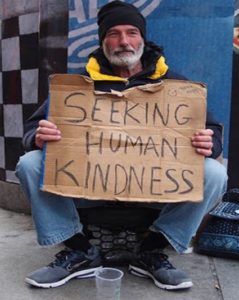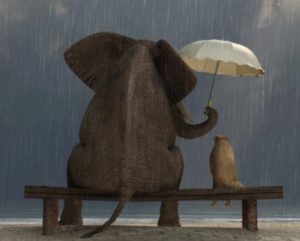 As the field of neuroscience rapidly evolves, our knowledge of how the human brain works, how it develops and the crucial factors that affect our behaviours, continues to grow. Debates regarding nature versus nurture have become more evidence based rather than a trading of hypotheses. We now know how crucial influences in the first formative years of life are in establishing social interaction capabilities and crucially emotional literacy, self-regulation and resilience in our children.
As the field of neuroscience rapidly evolves, our knowledge of how the human brain works, how it develops and the crucial factors that affect our behaviours, continues to grow. Debates regarding nature versus nurture have become more evidence based rather than a trading of hypotheses. We now know how crucial influences in the first formative years of life are in establishing social interaction capabilities and crucially emotional literacy, self-regulation and resilience in our children.
The notion of kindness represents a very human disposition with differing dimensions underpinning the intent and resolve. Our ability to think of others, to be friendly, generous and considerate are directly linked to our psychological state, our physiological condition and even our biology. It is difficult to express concern for others in the face of threat. In terms of our hierarchy of needs, survival is a mostly involuntary and self-directed function. Our reflexes act to keep us alive. The so-called primitive brain or brainstem controls our breathing, heart rate, body temperature and other survival-related functions. It also stores anxiety or arousal states associated with traumatic events. We are born with autonomic functions already developed to keep us alive – we don’t have to learn how to breathe, but the care we experience in the first two years of life, the extent to which we are co-regulated, soothed and whether our cries are met with loving response, directly affects our development physically, emotionally and socially. This determines our ability to deal with future stressful situations.
Faced with imminent danger, the brainstem’s role is to bypass and override higher brain function to ensure safety of the human organism by moving it directly to fight, flight or freeze. The brainstem directs blood flow, hormones and energy to where it is needed most – the heart, other muscles etc, in order to take instantaneous evasive action. It can be seen that this is an invaluable survival mechanism, in the moment, for the individual.
But what if the state of crisis persists? What if the body continues to feel under threat? In a well-developed brain, the higher functions are able to take back control, to assess, rationalise and to look beyond immediate survival. This brain has the ability to consider the implications of behaviour not just for the individual but also the impact it has on others. It can identify emotional states, regulate the body and control emotions.
Where the brain has not developed these capabilities, individuals have not experienced the support necessary for them to learn how to move beyond reactive responses to perceived threat. Associated behaviours can exhibit themselves as anger, violent outbursts, hyper vigilance or withdrawal – all signs of inability to cope. Such people may be constantly primed for survival. To a lesser or greater extent, they are directed to consider their own needs above those of others.
For some people, a lack of nurture and living with continued stress has not enabled them to develop sufficient self-regulation to control their emotions or to develop empathy. But we also have to face the fact that maybe some of us are just selfish, opinionated and convinced of their own superiority! As an informal researcher, I am fascinated to observe frequent examples of dysregulated behaviour in everyday life, in the media and sadly on most days on social media. It seems the World is an unkind place if all that we see or read is to be believed.
In a time of global pandemic with most people in lockdown, it is unsurprising that many people are operating in survival mode, that we hear evidence of stockpiling, increased domestic violence and attempts to self-soothe through drugs and alcohol in response to fear and anxiety. The perceived threats to our security are many – our finances, our health, our homes, our food and our toilet rolls!
I love the work of Bruce Perry, a man of compassion, wisdom, curiosity and optimism; a brilliant doctor who has worked with some of the World’s most deeply traumatised children. Bruce refers to ‘cumulative doses of therapeutic moments’. I love this phrase because it gives us confidence that we can all provide individual doses of healing and hope.
 Those of us who are able to exercise love, affection, concern and generosity can be the bearers of kindness. We can choose not to take offence. We can ask, ‘What has happened to you?’ rather than ‘What is wrong with you?’ and we can respond with kindness. I believe that sowing kindness reaps kindness. It is a choice to be kind. Sometimes it requires strength, courage, sacrifice and humility. But it is always worth it. The ability to understand, respond to, support and meet the needs of others brings benefits for the recipient and for the giver – reducing our stress, boosting our immune system and lessening our own anxieties. Kindness is necessary for community to succeed. We will not emerge from this pandemic without it.
Those of us who are able to exercise love, affection, concern and generosity can be the bearers of kindness. We can choose not to take offence. We can ask, ‘What has happened to you?’ rather than ‘What is wrong with you?’ and we can respond with kindness. I believe that sowing kindness reaps kindness. It is a choice to be kind. Sometimes it requires strength, courage, sacrifice and humility. But it is always worth it. The ability to understand, respond to, support and meet the needs of others brings benefits for the recipient and for the giver – reducing our stress, boosting our immune system and lessening our own anxieties. Kindness is necessary for community to succeed. We will not emerge from this pandemic without it.
Ten Kindness Tips
- Understand our own feelings and reactions – be curious about our own motivations, capabilities and foibles.
- Build our own security – be kind to ourselves first.
- Research – learn more about the holistic nature of the human organism, how mind and body work together to protect and regulate it and what can go wrong.
- Be curious – look beyond behaviours.
- Seek to understand others’ behaviour – ask ‘What has happened to you?’ instead of ‘What’s wrong with you?’ What anxieties or frustrations underlie the behaviour?
- Decide what kindness looks like for each individual.
- Choose kindness – understand that kindness is a choice. It requires us to take explicit action that focuses on the needs of others, sometimes above our own.
- Choose not to meet unkindness with unkindness – walk away or ignore, breathe and think before we respond.
- Respond to others with kindness – we can choose not to judge, to de-escalate, to empathise and to support.
- Initiate acts of kindness – what can we do today to sow kindness?